Improving the drought tolerance of pearl millet
November 14, 2022
Today at COP27 the focus of discussions is on water. Ensuring agricultural crops are resilient to drought, especially in the face of climate change is a huge undertaking but extremely important. Our researchers are investigating ways to make pearl millet more drought tolerant and ensure nutrient uptake. Pearl millet is a key crop that contributes significantly …
Food Systems in Small Islands and Developing States conference
October 17, 2022
This post is written by Dr Chin Chiew Foan, Associate Professor in Plant Biology, based at the University of Nottingham Malaysia. The Food Systems in Small Islands and Developing States conference 2022 (FSSIDS 2022) was held at The Everly Putrajaya Hotel, Kuala Lumpur, Malaysia from 7-9 September 2022. There were more than 50 participants from 10 countries …
Future Food PhD wins prestigious Carlos Fuentes award
September 21, 2022
Karla G. Hernandez-Aguilar, a PhD candidate with the Palaeobenchmarking Resistant Agricultural Systems project, has been awarded a Carlos Fuentes award by the Mexican Society of the UK for her PhD research. Karla’s PhD project is titled: Understanding microenvironments and the potential of traditional agricultural systems in a changing climate in Mexico and Belize. Her interdisciplinary …
Giving up meat and eating plants instead: Is it really that simple?
October 25, 2021
The complexities of nutrition and the misrepresentation of the livestock/meat industry are creating a simplistic view of much more complex systems, say Andy Salter and Phil Garnsworthy A Guardian commentary piece last week suggested that British meat-eating habits were rather out of control, and would need to be reduced by at least 20% (a statistic …
RADIANT: Realising dynamic value chains for underutilised crops
October 13, 2021
Biodiversity is hugely important for the functioning of natural systems, and restoring biodiverse ecosystems is an essential part of our fight against climate change. Biodiversity is key to food, nutrition and economic security, particularly for small farmers and farming communities in rural areas. There are around 259,000 plant species on our planet, of which 50,000 …
The National Food Strategy: our Director responds
July 15, 2021
This post is written by Prof David Salt. We welcome the publication of the National Food Strategy today. Since 2017, the Future Food Beacon has spearheaded transdisciplinary research on food systems, clear in the knowledge that our food systems must change in order to preserve population health and the health of the planet. The current …
The importance of food safety
June 7, 2021
Today is World Food Safety Day! The foods we eat need to be safe for us to consume, not only for human health but wider planetary health, economic prosperity and sustainable development. There are systemic interconnections between the health of people, animals, plants, the environment, and the economy. We all have a role to play …
Following the flight of the bumble bee – An interview with Chloe Sargent
February 23, 2021
Chloe Sargent is a UoN-Rothamsted PhD candidate. Her project is entitled ‘Risk assessment of sub-lethal insecticide exposure: new biomarkers and metrics in bees’. She is supervised by Dr Reinhard Stoger (UoN), Prof Emyr Davies (Rothamsted Research) and Dr Lisa Chakrabarti (UoN). Why did you decide to do a PhD? What were you doing before? Before …
Exploring diversity in pearl millet seed – An interview with Brighton Gapare
February 12, 2021
Brighton Gapare is a joint Nottingham-Rothamsted PhD Student 2019–2023. His project is entitled ‘Exploring genetic diversity in grain structure, composition and functionality of pearl millet germplasm’. His supervisors are Dr. Rahul Bhosale (UoN), Prof. Malcom Bennett (UoN) and Prof. Peter Shewry (RRes). He also works with Dr Neil Graham (UoN), Prof. David Cook (UoN), Prof. …
How does rice reproduce when it’s hot? – An interview with Maureen Ng’ang’a
January 29, 2021
Maureen Ng’ang’a is a second-year PhD student on the UoN-Rothamsted Graduate Centre for International Agriculture scheme. Her project is entitled ‘TempR: Developing reproductive resilience to heat stress in rice’. Her supervisors are: Dr. Sigrid Heuer (RRes), Prof. Zoe Wilson (UoN) and Prof. Erik Murchie (UoN). Why did you decide to do a PhD? What were …

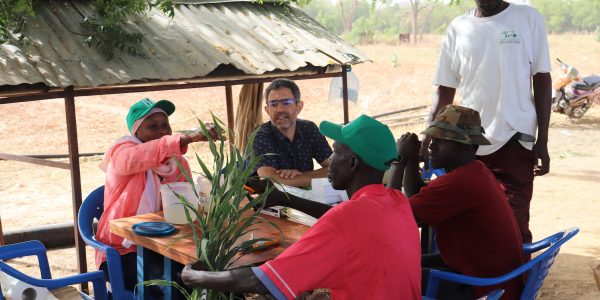
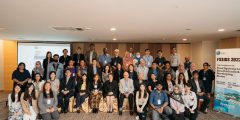

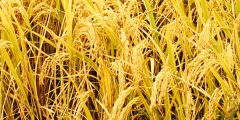
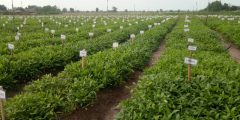



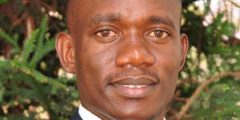

Recent Comments